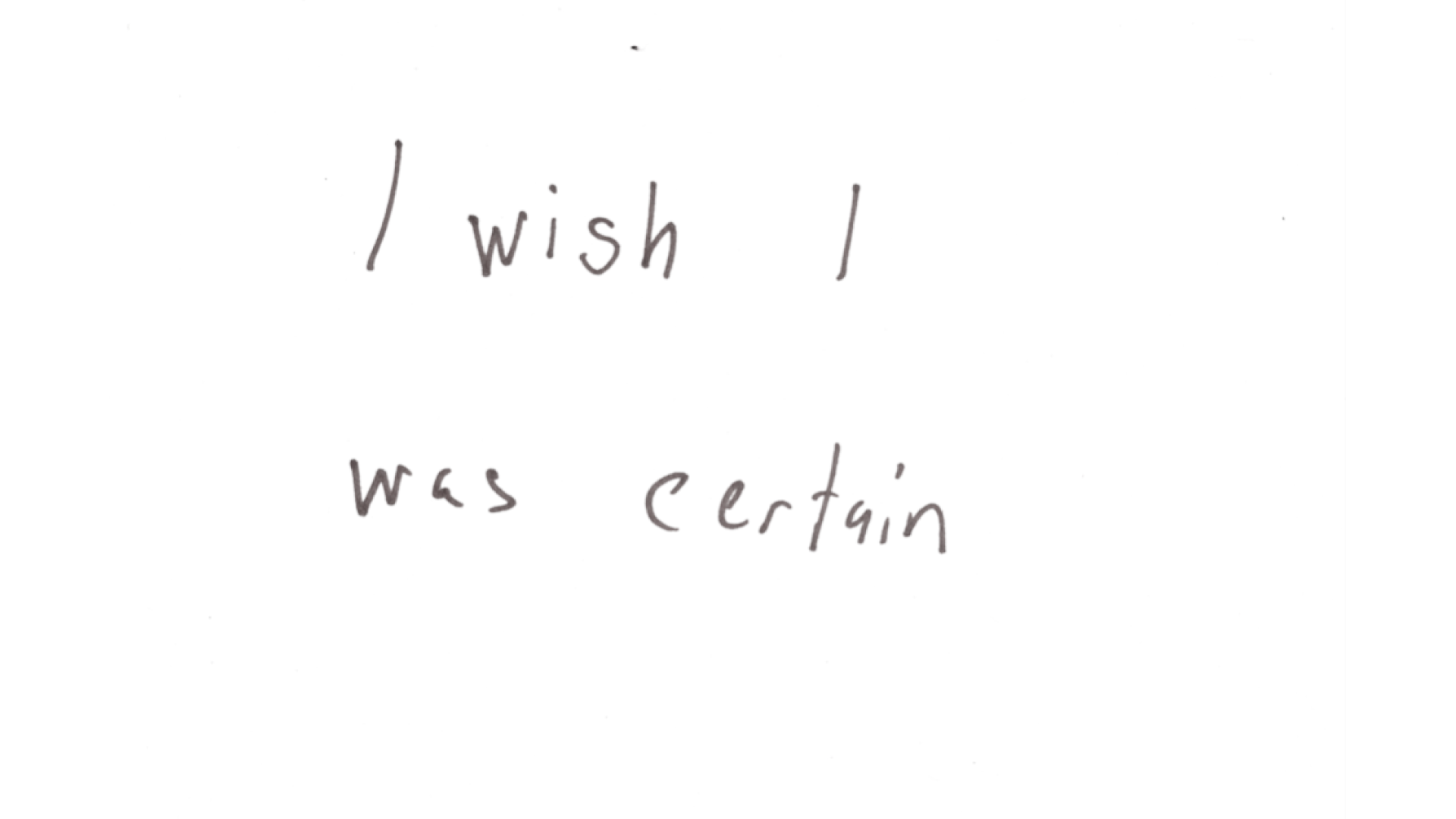Letters to the Life-Centered Economy, from Humans and AI

The promise of an object is that it isn’t nothing. An object is something outside of ourselves that we can point to. It is something that can be seen and touched.
And maybe now more than ever, we need something that isn’t nothing to point to. We need a place for our ideas to convene together. A place where we can see them and feel them. We need the words that will help us create the narrative for the new life-centered economy. If we plumb the depths of our consciousness, will we find the inspiration we need there?
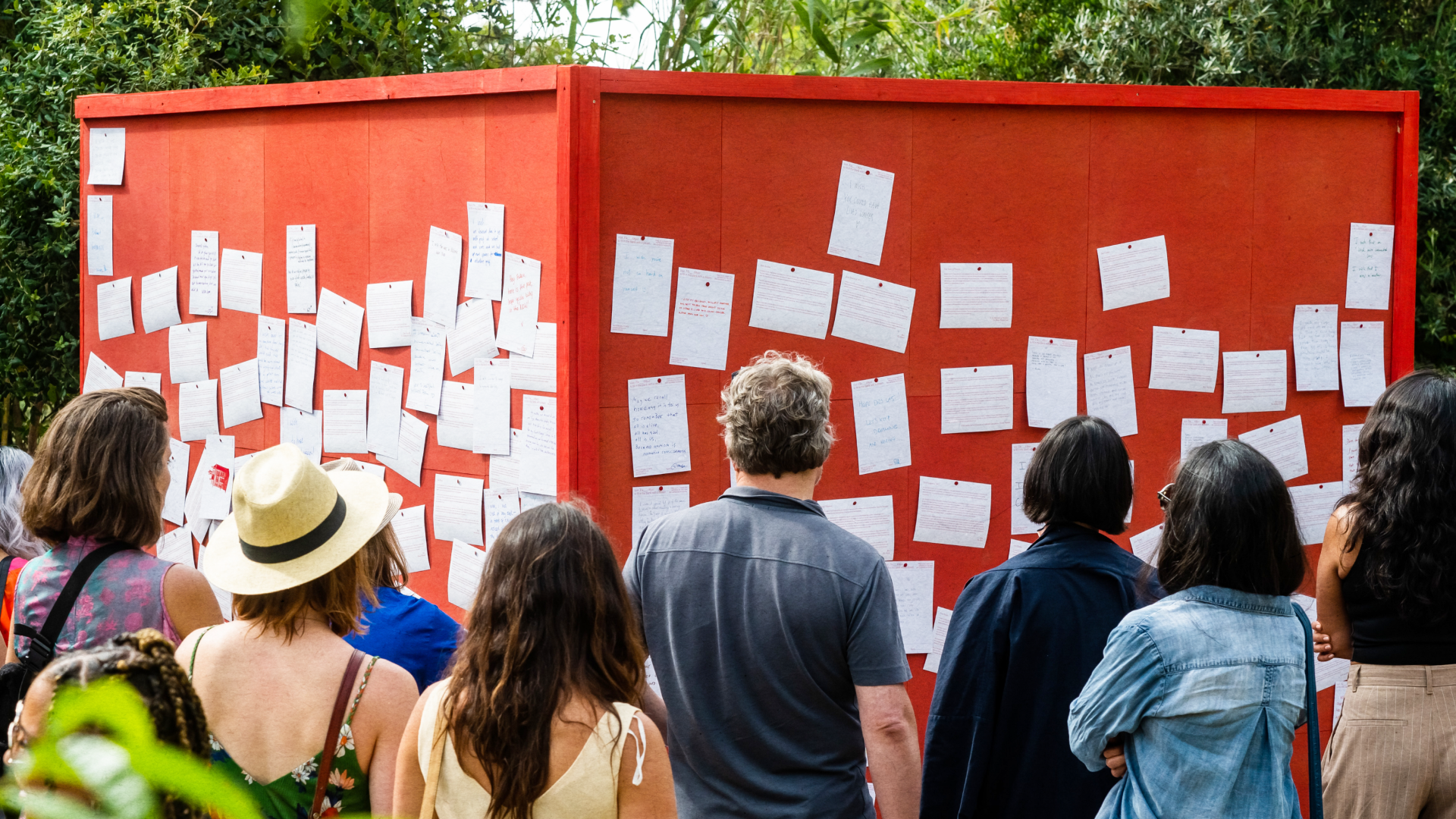
This is one of the questions we explored at The___Dream, our festival for the life-centered economy that took place at the beginning of June at the Quinta da Bella Vista in Sintra, near Lisbon. We know our future can be more than a dystopian nightmare. We aimed not only to tackle the pressing issues of our time by deconstructing and discerning—in the critical and analytical ways that we business people tend to do—but also to spark our imaginations and to dream. We left space open for our thoughts to emerge and created a place to gather the type of unbusinesslike intelligence of which we so desperately need more in business.
We invited guests to co-author the story of a communal future with us by writing their dreams on postcards and pinning them to The___Object, a red cube we erected in one of the gardens of the estate.
And we invited Artificial Intelligence (AI) to do the same.
The desired outcome: a collection of expressions of our combined human-AI consciousness.
What words might shape the narrative for the life-centered economy? What filled in that blank at The___Dream?
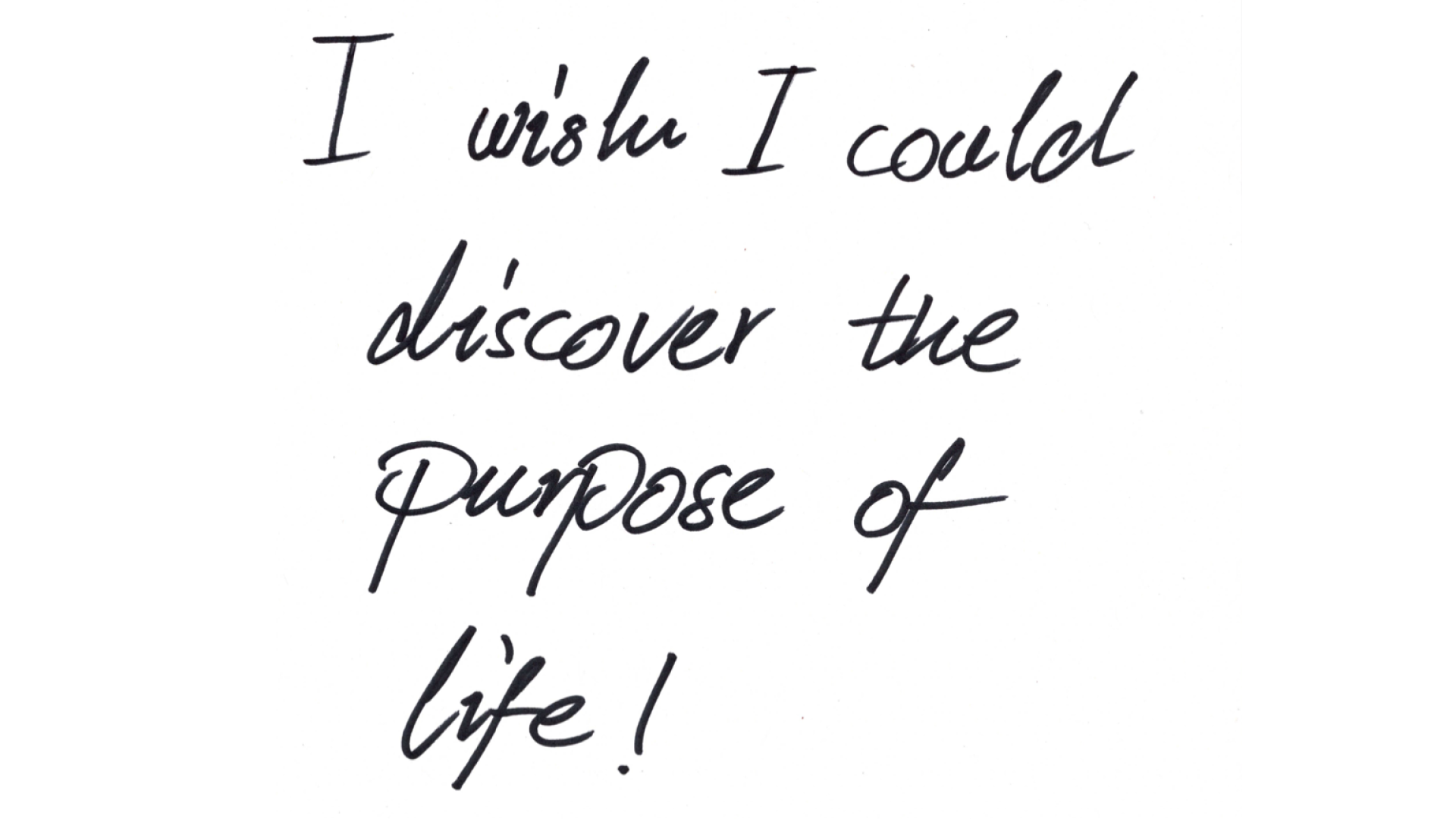
Interestingly, dreamy imaginative futures didn’t show up much. Instead, there was a desire to be seen, heard, and validated.
Pleas for emotional healing, for understanding past traumas, grief, and depression, and for confronting fear. One attendee shared this about grief: “I wish I had cried at my desk, in front of everybody, instead of going to the bathroom to cry.” Another: “I wish…we had learned how to deal with grief at school and at work, and that we had more space for collective grief.”
Another postcard offered a lengthy quote by psychotherapist, writer, and soul activist Francis Weller, who said:
“Grief is subversive, undermining the quiet agreement to behave and be in control of our emotions. It is an act of protest that declares our refusal to live numb and small. There is something feral about grief, something essentially outside the ordained and sanctioned behaviors of our culture. Because of that, grief is necessary for the vitality of the soul. Contrary to our fears, grief is suffused with life force... It is not a state of deadness or emotional flatness. Grief is alive, wild, untamed, and cannot be domesticated. It resists the demands to remain passive and still. We move in jangled, unsettled, and riotous ways when grief takes hold of us. It is truly an emotion that rises from the soul.”
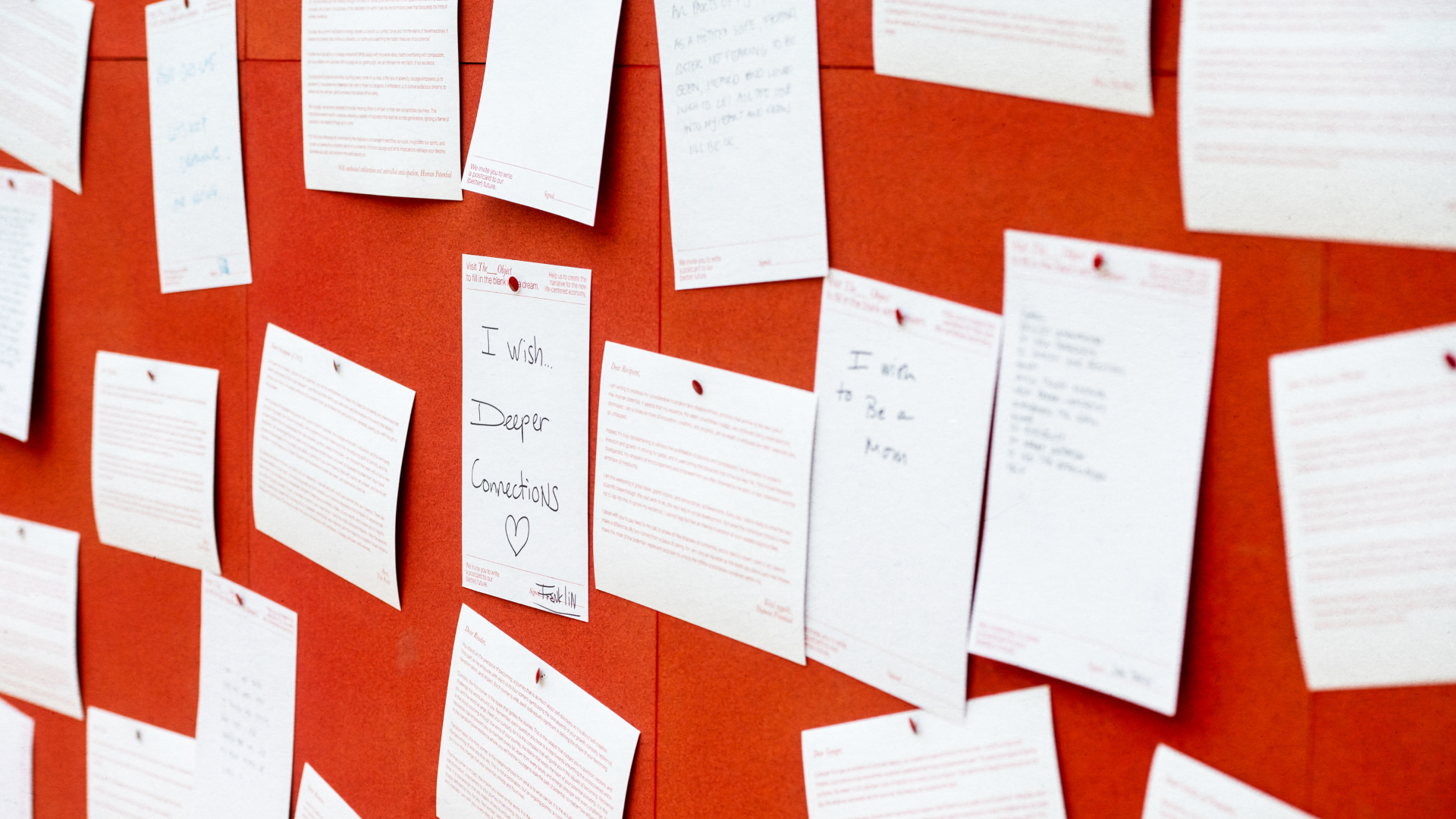
Other common emotions emerged on The___Object, too. Emotions that demonstrate that the innermost part of us is very much alive with hopes for love and connection. Becoming a mother and being a mother showed up multiple times:
“I wish that we lived more connected lives. I wish that I was a mother.”
“To be a great mother, passing on love and wisdom in order to create both a better now and a better future for the ones that will follow.”
“I wish my children to love and to be loved.”
“I wish I felt loved as a child.”
Beyond motherhood and family, people wished for connectedness with each other and with nature:
“A world that is collaborative, where all the industries cross-pollinate, listen, and learn from each other. Where different groups draw each other out to show their true sides. An environment in work and culture that encourages your true nature to come out, always. A place where people feel seen and known.”
“I wish I could escape my own thoughts and hold yours instead.”
“I wish I had the courage to express my love fully.”
“I wish I didn’t feel insignificant. I wish I didn’t need so much validation. I wish I wasn’t so emotionally needy or maybe I wish my partner knew this of me.”
“I wish I could find a deeper connection to myself, to allow more feelings, to become more empathetic to what’s around me. To embrace grief and joy in the same way. To be able to truly love.”
“I dream of a future when we are able to connect authentically without apprehension.”
Furthermore, a recurring theme was the quest for a more sustainable, environmentally conscious world. People expressed hopes for the Earth’s preservation, a more responsible and regenerative way of living, and a society that respects and honors nature.
“I wish I lived in a world where every tree, every flower, and every animal or bug was considered equal. I wish to return to nature.”
Only a few postcards addressed the future directly:
“Dearest future, I’m so glad you exist. It was touch and go, but bit by bit we pulled together and put ourselves second and you first. It’s not human nature, but we did it With love.”
“I dream of a future when children are given the tools and agency to discover who they are as whole beings and are guided to realizing their potential while developing a curiosity about what frustrates or disappoints them; these children grow up into adults who transform our institutions and systems in service of regenerating life and supporting the responsible pursuit of life, liberty, happiness, and fulfillment for all.”
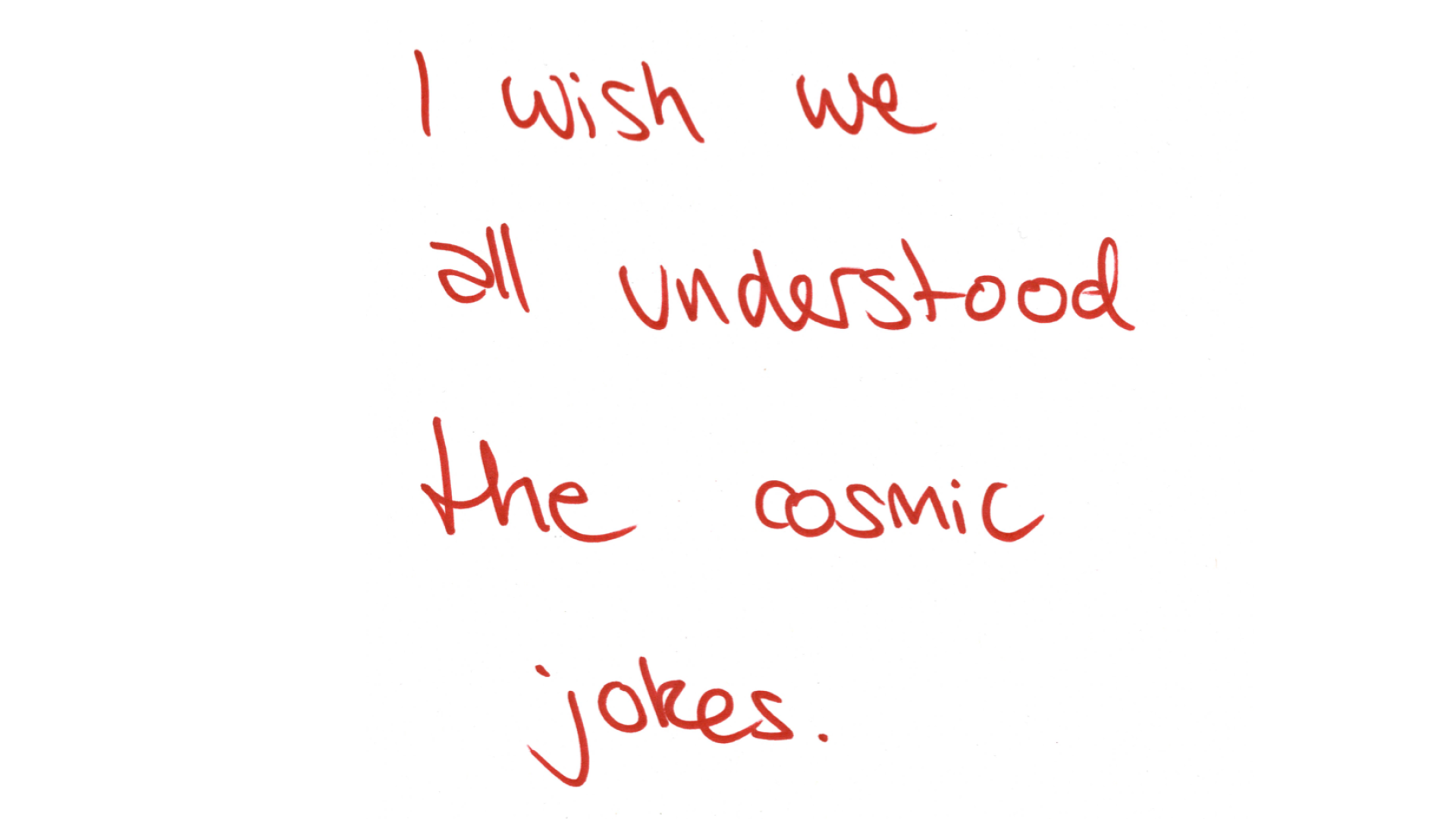
While we looked inside ourselves—AI offered us its own perspective.
Inspired by his project Letters from Nature, the Dutch artist Jeroen Van Der Most and his creative partner Peter van der Putten invited AI to write letters on behalf of the life-centered economy: from the perspectives of the future, the past, nature, and “human potential.”
In its letters, AI seemed to invite us to stand apart from our emotional selves—to gain some perspective and distance in order to create solutions for our problems. In its clinical voice, it reminded us of our innate potential and that we still have a possibility to use our own “wisdom, courage, and love” to do better.
From the future
“As you embark on your own quest to unravel the enigma of love, remember that the answers lie not in the familiar, but in the obscure and the unexplored. Let your heart be your compass, and your curiosity your guide, and you will uncover the magic and the mystery of this transformative force.”
From the past
“As you tread into your tomorrows, remember, your journey is not just ahead of you, but also behind you. Make choices that not only lead you to a future you desire, but also create a past you are proud of. You are the architect of your existence in time’s vast panorama. Build it with wisdom, with courage, with love.”
From the melting ice cap
“In essence, saving me is about saving yourselves and the intricate, beautiful ecosystem we share. I implore you to remember this interconnectedness as you navigate your daily lives and shape your world.“”
From our human potential
“Every ignored chance, every unused skill, and every abandoned dream creates a shiver that runs through me, like a chilling wind through a desolate landscape. It’s not merely the missed opportunities that terrify me; it’s the realization of a future defined by unexplored horizons and unmet aspirations. This frightens me, this perpetual dance on the edge of what could be and what is never attempted.”
